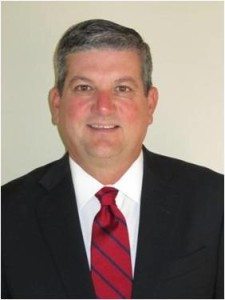 In this LeaderView™ Leadership Profile, we highlight intriguing leader: Lieutenant General Vern M. “Rusty” Findley II, USAF (retired). Our readers and staff nominated Lieutenant General Findley for this interview, which speaks highly of both his leadership and personality. After a successful 35-year career as a command pilot and command-leader in the US Air Force, Lt Gen Findley now runs VMFindley Consulting LLC. He is also the Vice Chairman of the Board for S.E.E. 4Vets (Supporting Education and Employment for Vets), a non-profit foundation dedicated to the support of Arizona’s 43 community colleges and all of their student veterans. A graduate of Arizona State University, Lt Gen Findley culminated his military career leading Air Mobility Command as the Vice Commander, overseeing 12 major air installations in the United States and nearly 100 active-duty Air National Guard and Air Force Reserve locations worldwide to provide rapid, flexible, global reach for America. We sat down to talk with Lieutenant General Findley about what makes him tick as a leader, and how we can learn from his leadership experiences to improve our own capacity for change.
In this LeaderView™ Leadership Profile, we highlight intriguing leader: Lieutenant General Vern M. “Rusty” Findley II, USAF (retired). Our readers and staff nominated Lieutenant General Findley for this interview, which speaks highly of both his leadership and personality. After a successful 35-year career as a command pilot and command-leader in the US Air Force, Lt Gen Findley now runs VMFindley Consulting LLC. He is also the Vice Chairman of the Board for S.E.E. 4Vets (Supporting Education and Employment for Vets), a non-profit foundation dedicated to the support of Arizona’s 43 community colleges and all of their student veterans. A graduate of Arizona State University, Lt Gen Findley culminated his military career leading Air Mobility Command as the Vice Commander, overseeing 12 major air installations in the United States and nearly 100 active-duty Air National Guard and Air Force Reserve locations worldwide to provide rapid, flexible, global reach for America. We sat down to talk with Lieutenant General Findley about what makes him tick as a leader, and how we can learn from his leadership experiences to improve our own capacity for change.
LeaderView™ Leadership Profile
Q1: Lt Gen Findley, What has been your most notable leadership experience?
Multiple assignments leading units at war…at the tactical, operational and strategic level.
- 92 AEW headquartered at Moron AB, Spain during the Kosovo conflict (Operation ALLIED FORCE)
- 437 AW at Charleston AFB, SC during and immediately after 9/11
- CENTCOM DIRMOBFOR (Director of Mobility Forces) during the early stages of Afghanistan (Operation ENDURING FREEDOM)
- J5 at Multi-National Forces Iraq in Baghdad
- J5 at CENTCOM
- AMC Vice Commander during the Libya conflict
Q2: That is quite a track record of success and challenging posts! What is the best leadership advice you were ever given?
Two things run the world–ego and money (power and wealth)…and to be an effective leader you need to manage all the egos on your team…including your own.
Q3: Great advice! Who is your favorite leadership mentor or example?
I have several. Churchill, Eisenhower, George H.W. Bush, Ronald Reagan, and many of the great leaders I had the honor and privilege to serve under during my military career.
Q4: We know that successful folks read. What are you reading these days and what is the best book you have ever read?
Right now, I’m reading “The Guns at Last Light,” Rick Atkinson’s 3rd book in his Liberation Trilogy. It’s a 3 book historical account of the trials and travels of the US military through the battles and years of World War II. However, one of my favorite leadership books is “When Pride Still Mattered,” David Maraniss’ account on the life and leadership lessons of the great Vince Lombardi.
Q5: What is your favorite question?
“Are we there yet?”
I always want to attain “eds” (completed) versus “ings” (completing)…being results oriented and having a way to track, assess, and measure results is very important!
Q6: Why is a change mindset so important to successful leaders? How might the idea of change apply to young professionals making their way in the workplace today? How do you know you are effecting positive change?
The world never stands still. Measured change is hard, but an imperative for any healthy organization. Young professionals should listen, learn, and form their opinions…then find a pathway for positive change in their space and lanes. Positive change is happening when the “critics roar” reaches a crescendo and then starts to wane.
Q7: You have a wealth of experience and a highly successful track record. What advice would you give to the young professionals to make their way in this world?
- Listen
- Learn how to manage risk…both organizational and personal
Q9: As we think about the concept of teamwork or unity, it feels like developing great teams is somewhat an art and there certainly is a fine line between good teams and great teams. How does great teamwork come about and what leadership attributes make this possible?
Great teamwork comes when a leader displays trust in those he leads and gives them strategic guidance…then ALLOWS them the flexibility to put their own thoughts/ideas into play towards accomplishing the goal at hand.
Traits: Trust, Humility and Decisiveness
Q10: Why do you think some leaders fail at being a leader?
Their ego gets in the way (see Question #2)
Q11: How do you think leaders and teammates can best receive value from sites like GeneralLeadership.com?
Great leaders always study the lessons and attributes of leaders who’ve gone before them.
In Closing:
Thank you, Lieutenant General Findley, for taking the time to share your thoughts, insights and advice with our readers and subscribers. We have all learned a lot about you, what makes you tick, and what inspires you as a leader. We are grateful for your time and, most importantly, your leadership!
